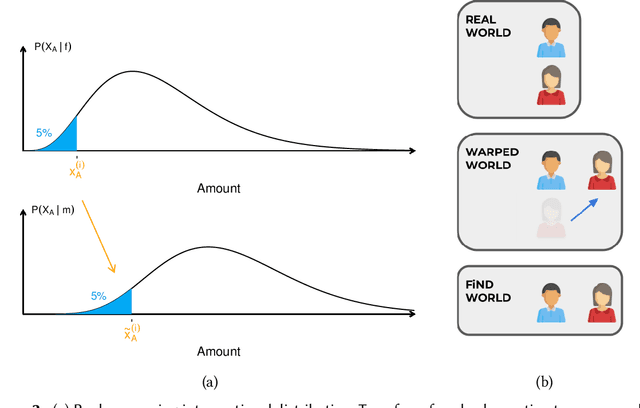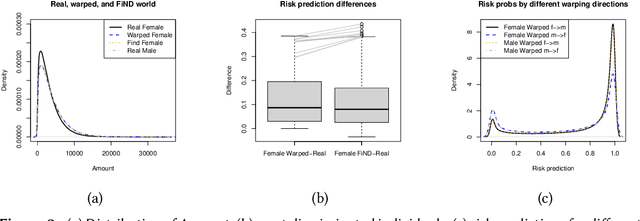Michael Schomaker
Causal Fair Machine Learning via Rank-Preserving Interventional Distributions
Jul 24, 2023



Abstract:A decision can be defined as fair if equal individuals are treated equally and unequals unequally. Adopting this definition, the task of designing machine learning models that mitigate unfairness in automated decision-making systems must include causal thinking when introducing protected attributes. Following a recent proposal, we define individuals as being normatively equal if they are equal in a fictitious, normatively desired (FiND) world, where the protected attribute has no (direct or indirect) causal effect on the target. We propose rank-preserving interventional distributions to define an estimand of this FiND world and a warping method for estimation. Evaluation criteria for both the method and resulting model are presented and validated through simulations and empirical data. With this, we show that our warping approach effectively identifies the most discriminated individuals and mitigates unfairness.
 Add to Chrome
Add to Chrome Add to Firefox
Add to Firefox Add to Edge
Add to Edge